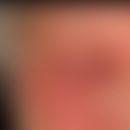DefinitionThis section has been translated automatically.
Leaves of the bucco shrub. Foliae Bucco are official in England, the United States of North America, Portugal, Argentina and Venezuela. Folia Bucco are listed in the Supplementary Book to DAB. VI.
HMPC: not edited.
ESCOP: not edited
Commission E: Negative monograph. No objections to flavor and odor corrosives in tea blends.
Empirical medicine: infections of the urinary tract: bladder, kidney inflammation, urinary tract inflammation, irritable bladder, prostatitis, also for gout, gastrointestinal diseases, rheumatic complaints. External: as a skin antiseptic.
IngredientsThis section has been translated automatically.
Essential oil (1.5 - 2.5 %): Pulegone, menthone, diosphenol, furthermore: flavonyl glycosides (diosmin, rutin), mucilage, flavonoids, isomenthone, menthone, limonene, flavonoids and mucilage.
You might also be interested in
Field of application/useThis section has been translated automatically.
The extracts of bucco leaves have a weak bacteriostatic and thus disinfectant effect in the urinary tract. Due to their aromatic taste (mint-like), bucco leaves are a flavoring agent in bladder and kidney teas.
DosageThis section has been translated automatically.
Barosmae folium can be taken as a tea infusion several times a day with 2 g (2 teaspoons) of the cut drug.
Undesirable effectsThis section has been translated automatically.
Skin and mucous membrane irritation
ContraindicationThis section has been translated automatically.
Pregnancy and breastfeeding.
LiteratureThis section has been translated automatically.
- https://www.phytodoc.de/heilpflanzen/bucco#wobei-hilft-bucco-6337
- Blaschek W (2015) Wichtl tea drugs and phytopharmaceuticals. A handbook for practice. Wissenschaftliche Verlagsgesellschaft Munich. S 118-120
- Schilcher H (2016) Guide to phytotherapy. Urban & Fischer Verlag Munich, p. 93 f.
- Takatani O et al,(1967) The effect of steroidal diosphenol agents on advanced breast cancer. Endocrinol Jpn 14:195-208.




